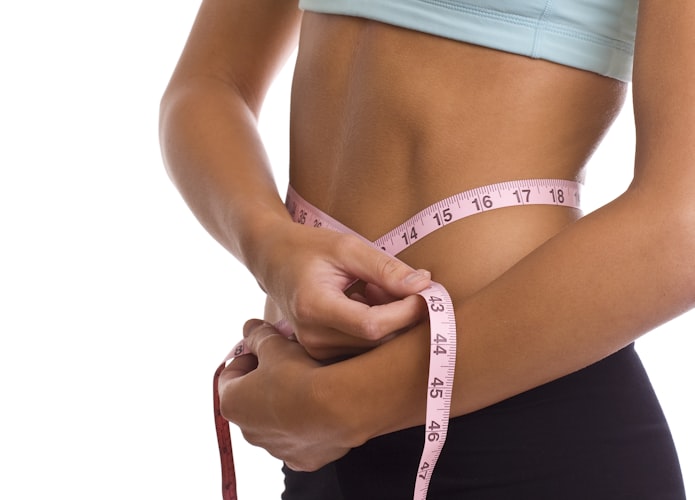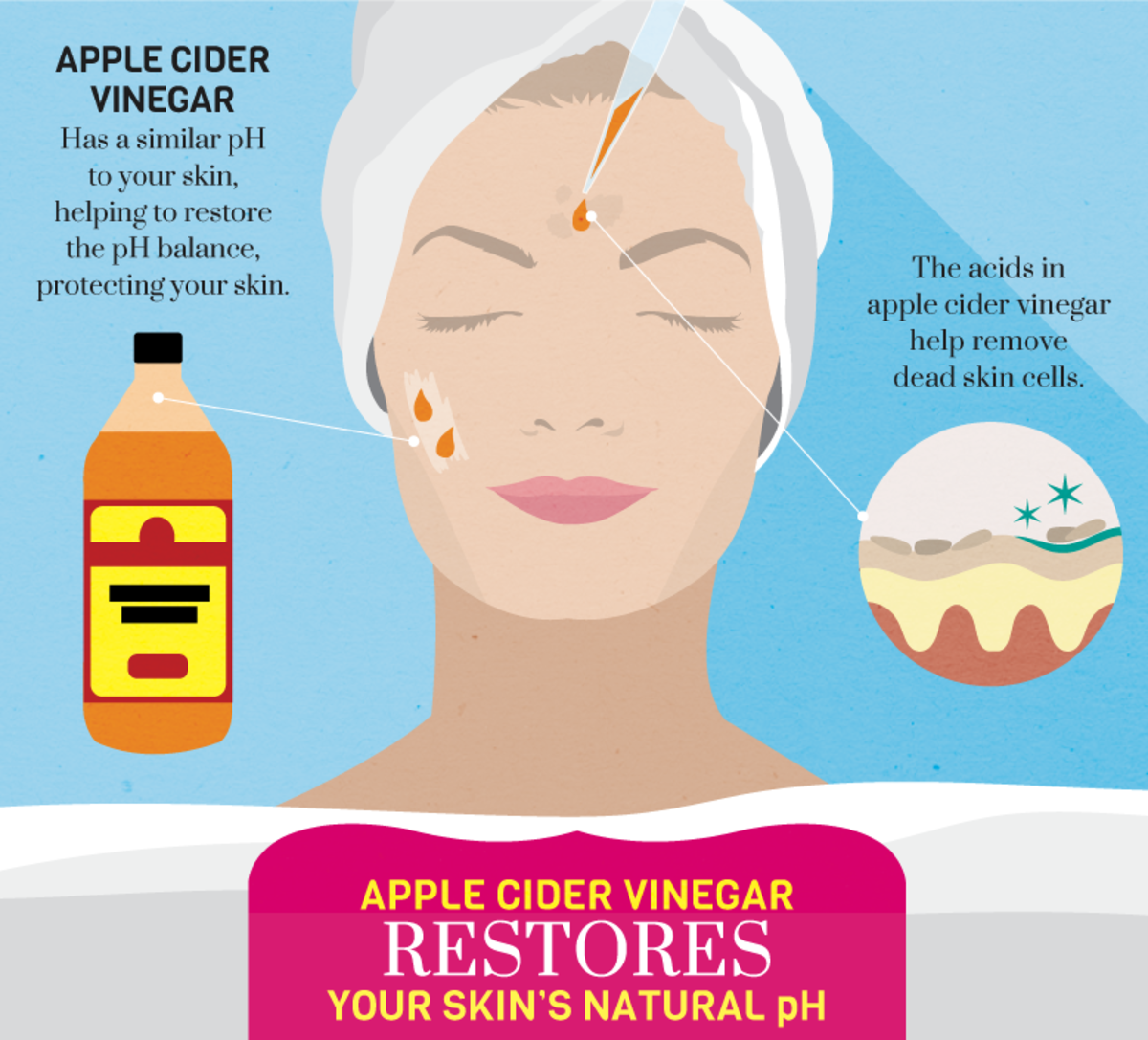Apple cider vinegar
has a long history of being used as a home remedy to use to treat things
like sore throat and varicose veins. People have used it in cooking and in
medicine for centuries.
There's not much science behind these claims. But some
researchers have been looking more closely at apple cider vinegar in recent
years and its potential benefits.
Many people claim it can relieve a
wide variety of health complaints, but you might wonder what the research says.
There is, however, little research,
and further research is needed before it can be recommended as an alternative
therapy.
The research behind apple cider
vinegar and its various benefits are explored in this article. It also gives tips on including apple cider vinegar
into your diet.
What is Apple Cider Vinegar?
First, let's look at what apple cider vinegar, or ACV, is exactly. The ACV consists of fermented apples and water. Like other vinegar, the acidity of ACV is 5 percent.
You may notice various types of ACV
are available at the store. For example, distilled ACV looks clear in the
bottle, and it may be the one you know the most. However, raw, unfiltered or
unpasteurized ACV contains a cloudy substance floating around in the mixture.
This is called the "mother," and is formed during fermentation by
natural enzymes.
This stringy substance usually
settles down to the bottom of the bottle
and is safe to consume.
Regardless of the variety, ACV is not required to be refrigerated, and it will last for a very long time. According to The Vinegar Institute, an international trade association for vinegar producers, vinegar in general has an almost indefinite shelf life. Even if your vinegar changes appearance (for example, it might look cloudier), it's still fine to use.
1tbsp of apple cider vinegar
has about 3 calories and no carbs.
What are the health benefits of Apple Cider Vinegar (ACV)?
#1 Weight Loss
Studies have shown that vinegar can increase the feeling of fullness. This can lead you to lose weight and eat fewer calories.
Acetic acid, which is the main component of vinegar has been found to suppress fat accumulation in animal studies, according to the study published in Bioscience, Biotechnology, and Biochemistry. In a double-blind trial, the researcher's team also investigated the effects on obese Japanese.
The simple addition or subtraction of
single foods or ingredients rarely has a noticeable weight effect. It is your
entire diet or lifestyle that causes a weight loss in the long term.
To sum up, ACV can contribute to
weight loss by promoting satiety, lowering blood sugar, and lowering insulin levels.
#2 Can Help kill Harmful Bacteria
Vinegar can help in killing pathogens
including bacteria.
Vinegar has traditionally been used
by people to clean and disinfect, treat nail fungus, lice, warts, and ear
infections.
Hippocrates, the father of modern
medicine used vinegar more than 2,000 years ago to cleanse wounds.
Also, vinegar is a food preservative and studies have shown it inhibits bacteria like E. Coli growing in food and spoiling it. Apple cider vinegar could help if you are looking for a natural way to preserve your food.
Anecdotal reports also suggest that
when applied to the skin, diluted apple cider vinegar can help with acne, but
there is no strong research to confirm this.
#3 Help Lower Blood Sugar Level
Apple
cider vinegar is often recommended as a natural way of controlling blood sugar
levels, especially for insulin-resistant individuals.
Before
a high-carb meal, vinegar slows the rate of emptying of the stomach and
prevents large spikes of blood sugar.
It
also improves the sensitivity of insulin, which helps your body move more
glucose out of the bloodstream and into your cells, reducing blood sugars.
Before
meals four teaspoons (20 ml) of apple cider vinegar have been shown to
significantly decrease blood sugar levels after eating.
Right
before a high-carb meal, it should be mixed with a few ounces of water and
consumed.
#4 Improves Polycystic Ovarian Syndrome PCOS Symptoms
PCOS
is a hormonal condition associated with abnormal menstrual cycles, high
androgen hormone levels, ovarian cysts, and insulin resistance.
One
three-month study found that women with PCOS who drank one tablespoon (15 ml)
of 100 ml apple cider vinegar or about 7 ounces of water immediately after
dinner had improved hormone levels and experienced more regularity in periods.
While
further research is required to confirm these results, an effective dose for
improving PCOS symptoms appears to be one tablespoon (15 ml) each day.
#5
Reduces Heart Risks
ACV
can help to reduce the levels of cholesterol and triglycerides,
which are known to increase the risk of heart disease when too high. In
addition, alpha-linolenic acid (which is high in ACV) has also been found to
reduce the risk of heart diseases in women.
A
study shows that vinegar in hypertensive rats reduces blood pressure — good
news, seeing as high blood pressure is linked to cardiovascular disease and
increased mortality rates.
So,
if heart health is your concern, then you may consider adding ACV to your diet.
#6
May Boosts Skin Health
Apple
cider vinegar is a common remedy for skin conditions such as eczema and dry
skin.
Naturally
the skin is a little acidic. The use of topical apple cider vinegar could help to
rebalance the skin's natural pH and improve the protective skin barrier.
On the other hand, alkaline soaps, and cleansers might irritate eczema resulting in
intensifying the symptoms.
Apple
cider vinegar could, in theory, help to prevent skin infections linked to
eczema and other skin conditions, due to its antibacterial properties.
Some
people use diluted ACV in toner or facewash. This helps in killing bacteria and
prevent spots.
However,
one study reported that apple cider vinegar soaks did not improve the skin
barrier and caused skin irritation in 22 people with eczema.
Talk
to your healthcare provider before you try new remedies, particularly for
damaged skin. Avoid applying undiluted vinegar to the skin, as it can lead to burns.
#7
Improves Hair Health
Apple
cider vinegar is an ingredient commonly found in natural shampoos. This may be
because it contains acetic acid, which naturally helps to lower pH.
Research
has found advantages of lower pH for hair health, and ACV's antimicrobial
benefits are well documented. All that to say, ACV can help balance and clarify
your hair—and it could potentially also help hair fight off bacteria, which can
harm your locks' health and appearance.
Best Practices to Avoid Side Effects
Apple
cider vinegar is relatively safe to consume but some people may experience side
effects.
Because
the acidity of apple cider vinegar is responsible for many of its health
benefits, don't mix it with anything that could neutralize the acid and reduce
its positive effects.
Keep
in mind that the acidity of the vinegar can also cause damage to tooth enamel
if used regularly. Drinking through a straw and afterward rinsing your mouth
with water may help to prevent that.
While
drinking apple cider vinegar is associated with health benefits, consuming
large amounts (8 ounces or 237 ml) every day can be dangerous for many years
and is linked to low levels of potassium in the blood and osteoporosis. Remember moderation is the key!
If
you experience uncomfortable side effects, such as nausea, burping or reflux
after taking apple cider vinegar, stop taking it and discuss these symptoms
with your doctor.
Dosage
and How to Add it to Your Diet
Using
apple cider vinegar in your diet is the best way to incorporate it in the
cooking. It is a simple supplement to foods such as salad dressings and
homemade mayonnaise.
Some
people like to dilute it in water as well and drink it as a drink. Common doses
range from 1–2 teaspoons (5–10 mL) to 1–2 tablespoons (15–30 mL) in a large
glass of water per day.
Starting
with small doses is best and avoiding taking large amounts. Too much vinegar
can cause harmful side effects, including erosion of the tooth enamel and
possible interactions between drugs.
It
is recommended to use organic, unfiltered ACV containing the mother.
TakeAway
Apple
cider vinegar can help manage the sugar in the blood, improve PCOS symptoms and
promote weight loss.
A typical dose is 1–2 (15–30 ml) tablespoons mixed with water and taken before or after meals. Apple cider vinegar is a relatively safe supplement for moderate consumption.
Follow The Healthy Pinch on Instagram.




Comments
Post a Comment